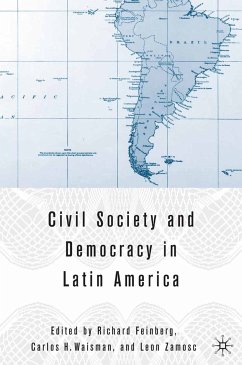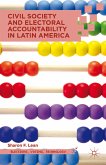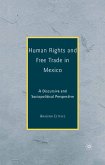Dieser Download kann aus rechtlichen Gründen nur mit Rechnungsadresse in A, B, BG, CY, CZ, D, DK, EW, E, FIN, F, GR, HR, H, IRL, I, LT, L, LR, M, NL, PL, P, R, S, SLO, SK ausgeliefert werden.
"This superb book addresses one of the most important issues of our time in Latin America: democratization, and the role of civil society in strengthening it. The essays address changes in the region both from a theoretical and empirical perspective. Case studies focus on Argentina, Brazil, and Venezuela, with their very interesting contrasting civil society experiences." - Susan Eckstein, Professor of Sociology at Boston University, Ex-President of the Latin American Studies Association
"This book offers a bountiful harvest of conceptual perspectives on the complex relationships between civil society and democracy set against the rich tapestry of contemporary Latin American politics and society." - Lester M. Salamon, Director of Center for Civil Society Studies, Institute for Policy Studies at Johns Hopkins University
"Does the current growth of civil society promote democracy? These essays significantly advance this discussion by addressing the crucial question of the many ways the ensembles of civil society organizations relate to politics. Rehearsing modest success and considerable weaknesses in Latin America, they show the variation between countries, between social sectors in individual countries, and even between issue-areas. They go a long way to replace enthusiasm and cynicism with a new and more productive realism." - Douglas Chalmers, Professor of Political Science, Columbia University









